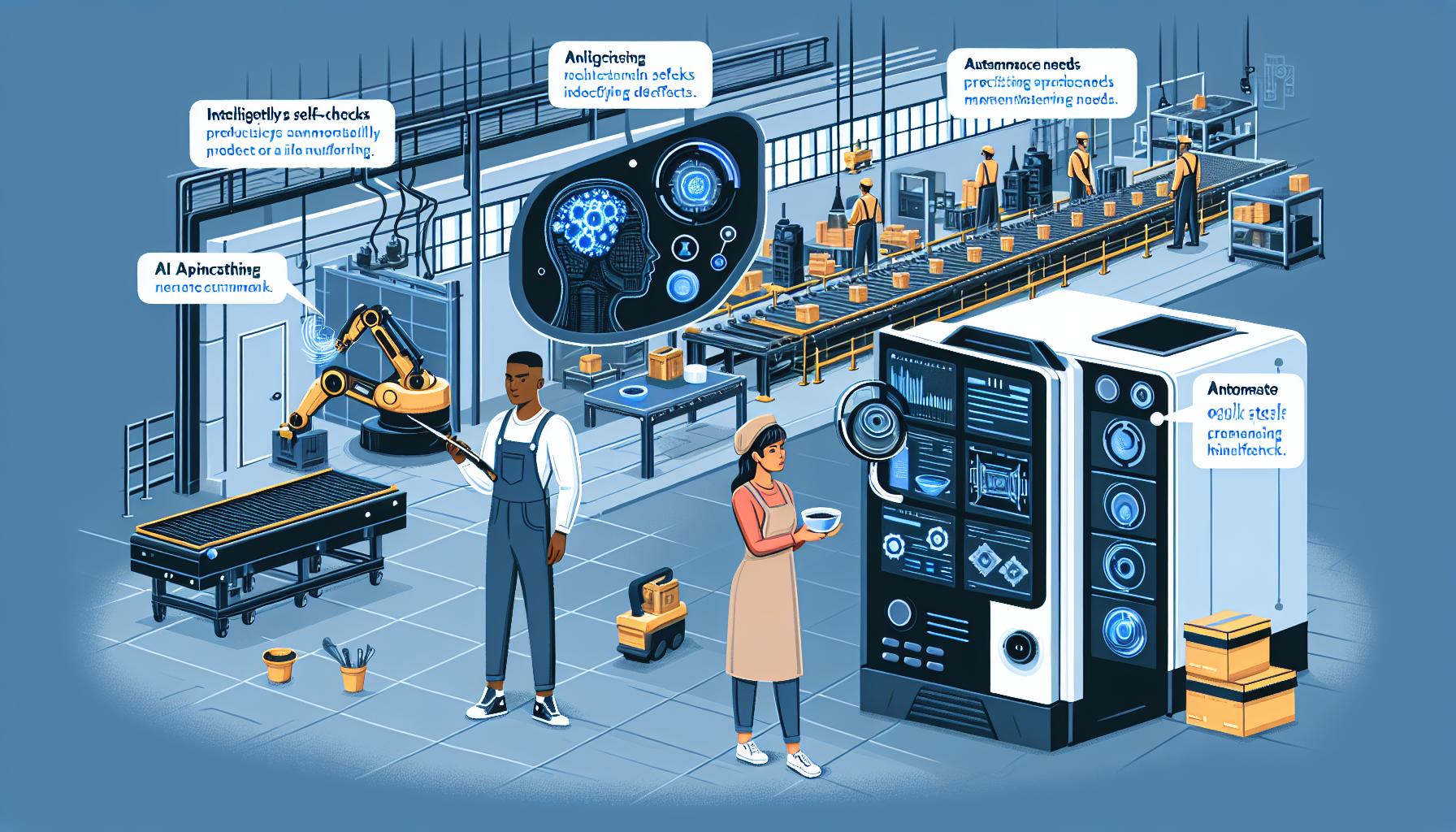AI in Manufacturing: Automating Quality Control and Maintenance

Introduction
The manufacturing industry is undergoing a transformation, thanks to the integration of Artificial Intelligence (AI). This transformation is not just about automation of tasks but also about enhancing the quality and efficiency of production processes. AI in manufacturing is particularly promising in areas like quality control and maintenance, where it can provide real-time insights and predictive capabilities that were previously unimaginable. By leveraging AI, manufacturers can monitor production quality with greater precision and predict maintenance needs, thus ensuring smoother operations and reduced downtime.
AI-Driven Quality Control
Quality control is a critical aspect of manufacturing, ensuring that products meet the required standards and specifications. Traditionally, quality control has been a manual process, involving human inspectors who examine products for defects. However, this method is not only time-consuming but also prone to human error. AI is changing this by automating the quality control process. AI algorithms can analyze production data in real-time, identifying defects with a level of accuracy that surpasses human capabilities. These algorithms use machine learning to learn from historical data, improving their ability to detect anomalies over time. By implementing AI-driven quality control, manufacturers can significantly reduce the rate of defective products, leading to cost savings and improved customer satisfaction.
Optimizing Production Processes
Beyond defect detection, AI also plays a crucial role in optimizing production processes. AI systems can analyze vast amounts of data generated during manufacturing to identify patterns and suggest optimization techniques. For instance, AI can recommend adjustments to machine settings or workflow changes that enhance efficiency and reduce waste. These insights allow manufacturers to make data-driven decisions that improve overall productivity. Furthermore, AI can simulate different production scenarios, helping manufacturers anticipate potential issues and devise strategies to mitigate them before they occur. This proactive approach to production management not only boosts efficiency but also fosters innovation by encouraging continuous improvement.
Predictive Maintenance with AI
One of the most significant advantages of AI in manufacturing is its ability to facilitate predictive maintenance. Traditional maintenance strategies often rely on scheduled checks or reactive repairs, which can lead to unexpected downtime and increased costs. AI changes this paradigm by enabling machines to perform self-checks and alert human operators before issues arise. Using sensors and AI algorithms, machines can monitor their own performance, detecting signs of wear and tear or potential failures. This data is then analyzed to predict when maintenance is needed, allowing for timely interventions that prevent breakdowns. Predictive maintenance not only extends the lifespan of machinery but also optimizes resource allocation, as maintenance efforts are focused on areas that truly need attention.
Conclusion
The integration of AI in manufacturing is a game-changer, particularly in the realms of quality control and maintenance. By automating these processes, AI not only enhances efficiency but also reduces costs and improves product quality. As AI technology continues to evolve, its applications in manufacturing will undoubtedly expand, offering even more opportunities for innovation and improvement. However, the transition to AI-driven manufacturing is not without challenges. Manufacturers must invest in the right technology and training to fully harness the potential of AI. Furthermore, there are ethical considerations around data privacy and the impact of automation on the workforce that need to be addressed. As the industry navigates these challenges, the focus should remain on leveraging AI to create smarter, more efficient manufacturing processes that benefit both businesses and consumers. To learn more about the potential of AI in manufacturing, industry professionals should engage with ongoing research and development efforts, participate in relevant training programs, and collaborate with technology providers to tailor AI solutions to their specific needs.




